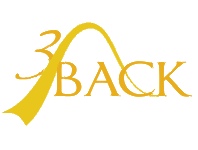When a Dev team, their Agile Coach, and Team Facilitator are working well together, it’s a great thing to see! The Agile Coach helps a number of teams to strengthen their use of Scrum, improve technical skills, and identify a team kaizen each Sprint. Each of these teams has a Facilitator whose role is to ensure that his or her team is correctly making use of Scrum. Ideally, the Coach and Facilitator have a close working relationship, and particularly if team members are learning how to work together, lots of reliance and trust will be placed on the Coach.
But does a team need a full-time Coach forever? If not, how do Scrum Team members recognize when it’s time to “graduate” from full-time coaching?
The Shift to a need for Facilitation
The answer is: when the Scrum team tips over from mostly needing coaching about what Scrum is and how to do it… to needing facilitation to make their use of Scrum smooth and easy. Don’t think in terms of the formal ceremonies, as much as the outcomes those activities aim at: planning, reviewing, identifying obstacles, et cetera. A full-time Coach is needed when a team’s still learning what the ceremonies mean, what they aim at, and how they can achieve those outcomes. The Coach models and provides leadership as the team internalizes these practices well enough to begin owning them. When the team starts to own their agile practice, then they need facilitation: a team member committed to help make these practices as easy and efficient as possible. Now, a full-time Coach isn’t necessary.
Signs a team is approaching graduation
- Team members are comfortable taking the initiative in activities the Coach previously had to jump-start. Example: developers call out impediments during Standup and ask for support in a timely way, without a Coach needing to detect the issue and prompt members to work together.

- The team and its Facilitator revisits and revises how it’s running ceremonies, without needing the Coach to prompt them. Example: developers recognize when Planning is getting flat or missing interdependencies, and work with the Facilitator’s help to improve the quality of Planning.
- When they detect impediments, team members strategize together on the fly to respond–without relying on a Coach to drive the solution or waiting for ceremonies to address the issue. Example: “Teamlets” of two or more developers come together to work through obstacles during Sprints.
- Team members are generally able to work through interpersonal conflicts that come up on the team, or between the team and others in the business, without needing intervention. Example: if disagreements about how to work through a Story come up, the developers can find a way through together, with some light support from the Facilitator if needed, without a need for a full-scale conflict mediation session run by the team’s Coach.
- The team is proactive in recognizing when it needs to reallocate where it’s putting attention, effort and energy. Example: Dev members, with the Facilitator’s help, regularly use Review and/or Retrospectives to recognize inefficiencies and reorganize their work together.
- Team members detect needs for SME’s (Subject Matter Experts) or other resources and pursue them proactively.
- Team members communicate with stakeholders and internal customers as needed, including soliciting feedback, rather than relying on you to do this for them
All of these are signs that a Coach is no longer on a full-time basis to spur the team to self-organize—instead, team members assume the responsibility is theirs.
What happens after graduation?
Your team’s graduation doesn’t mean they don’t need the Coach anymore, ever again. No–what it means is that they’ve graduated from relying on the Coach’s full-time presence.
Now the Coach becomes a resource for the team to pull in as needed. When this happens, the Coach has graduated to SME for the increasingly Well-Formed Team!

